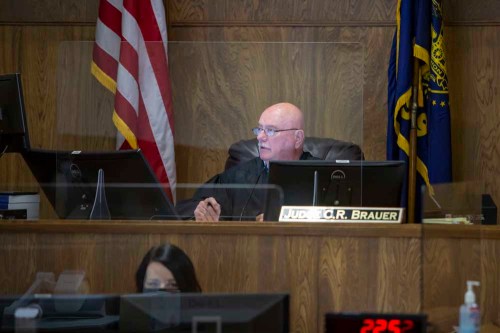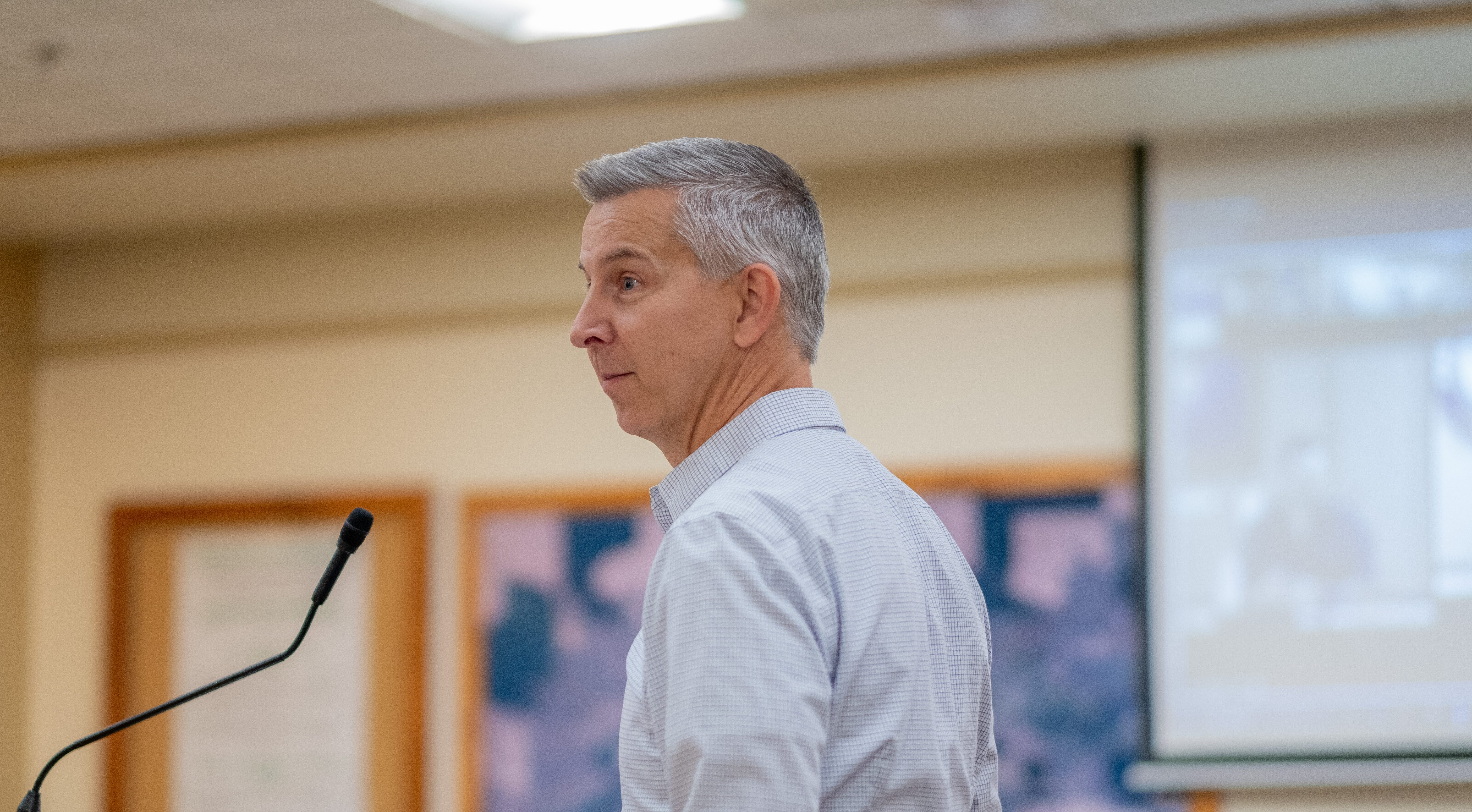Court proceedings continue amid pandemic
Published 5:00 am Tuesday, August 18, 2020

- Circuit Judge Christopher Brauer presides over a pretrial conference Aug. 14, 2020. Brauer has served on the circuit court for Umatilla and Morrow counties since 2007 and is retiring on Dec. 31, 2023.
PENDLETON — While not necessarily uncommon prior to the coronavirus pandemic, remote call-ins now account for the bulk of court appearances and have required attorneys and their clients adjust to the new reality.
The site of both the county offices and circuit court, the Umatilla County Courthouse in Pendleton requires all individuals who enter to be screened and have their temperature taken by security at the building’s front entrance, and all visitors are required to wear face coverings at all times.
Trending
“It’s not like anybody has an answer, this isn’t something anybody has experience with,” said Kara Davis, who primarily works sex crimes and murder cases as assistant director for Intermountain Public Defender. “It’s been stressful for sure.”
According to Roy Blaine, trial court administrator for Umatilla County, the court is generally encouraging people to call into court proceedings by phone unless an in-person appearance is absolutely necessary.
“There aren’t a whole lot of kinds of hearings other than trials, and some kinds of changes of plea in criminal cases that are absolutely needed to be heard in person,” he said.
Blaine said the court is more “actively encouraging” people to appear by telephone since Umatilla County was sent back to the baseline of reopening on July 31, but that move hasn’t resulted in any other significant changes.
Many criminal and family law hearings are proceeding under these changes at the Pendleton courthouse, which remains open for public court services, while courts at the Stafford Hansell Government Center in Hermiston are closed to the public and reserved exclusively for jury trials.
For attorneys like Davis, the virus and its assortment of impacts on local legal proceedings have been a constant consideration for how to approach a given case.
Trending
“It’s a little unsettling because you’re trying to adapt to something new that you never expected or thought about having to adapt to before,” she said.
Davis has worked trials and had to appear in person on multiple occasions during the pandemic, though she said the courthouse and courtrooms are noticeably less crowded than before.
Davis was set to appear for a three-week jury trial to defend Shayla Fawn Record Tsosie, who faces one charge of second-degree murder and unlawful use of a weapon, starting Aug. 10. With a number of witnesses needed to testify and people likely to be coming and going through the courtroom, Davis motioned for and was granted a delay to an undetermined date.
“Our concern was the health and safety of the people that were going to be involved in a long trial,” Davis said.
Davis, her clients, and the prosecution all have to consider the potential length and complexity of a trial and how the risks of the virus may impact a jury’s consideration of a case. And that’s in addition to the material differences in holding a criminal trial with jurors not seated in the jury box and clients and their representation required to sit 6 feet away.
“It feels like there’s a bit more pressure to settle for both sides because nobody really knows how a jury is going to take it,” Davis said.
Davis said there may not be an answer for how to remedy these court complications while continuing to oblige people of their right to a speedy trial, especially for those incarcerated pretrial. But she said there may be room to reduce the number of proceedings by not prosecuting as many petty crimes.
“I don’t know why we’re so hellbent on prosecuting people for petty little crimes, like disorderly conduct, in the middle of a pandemic,” Davis said. “I feel like that is something that could be changed.”
According to Blaine, the Umatilla County Circuit Court hasn’t developed an official plan for how people who appear at the courthouse would be contacted if it was discovered that they may have been exposed to someone with the virus while there.
“We have had no actual reports of COVID exposures in the courthouse,” Blaine said. “If we were to have a reported exposure we’d deal with making sure attorneys, and through them their clients, were aware of them.”
Though the local courts have avoided a direct run in with COVID-19 so far, Blaine mostly chalks that up to luck.
“We heard some after-the-fact possible reports, none of which panned out,” he said. “We’ve been very fortunate, and I continue to maintain that it is just by fortune that we haven’t had one yet.”
As court proceedings continue throughout the risks of COVID-19, the concern of those fortunes eventually running out continue to weigh on the minds of those still shuffling through the local courtrooms.
“It’s a tightrope between wanting to vigorously advocate for our clients’ rights while also not putting ourselves at risk,” Davis said.









